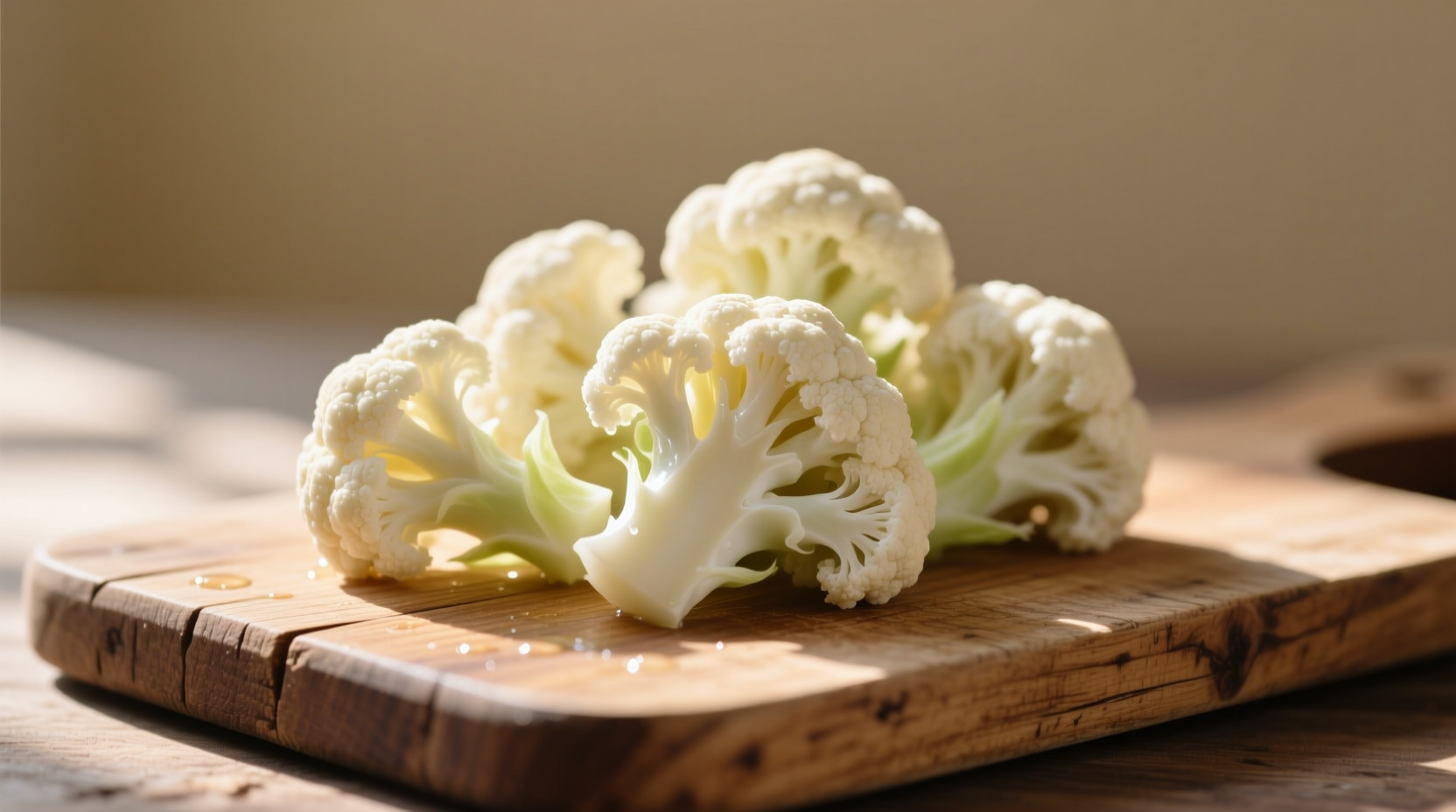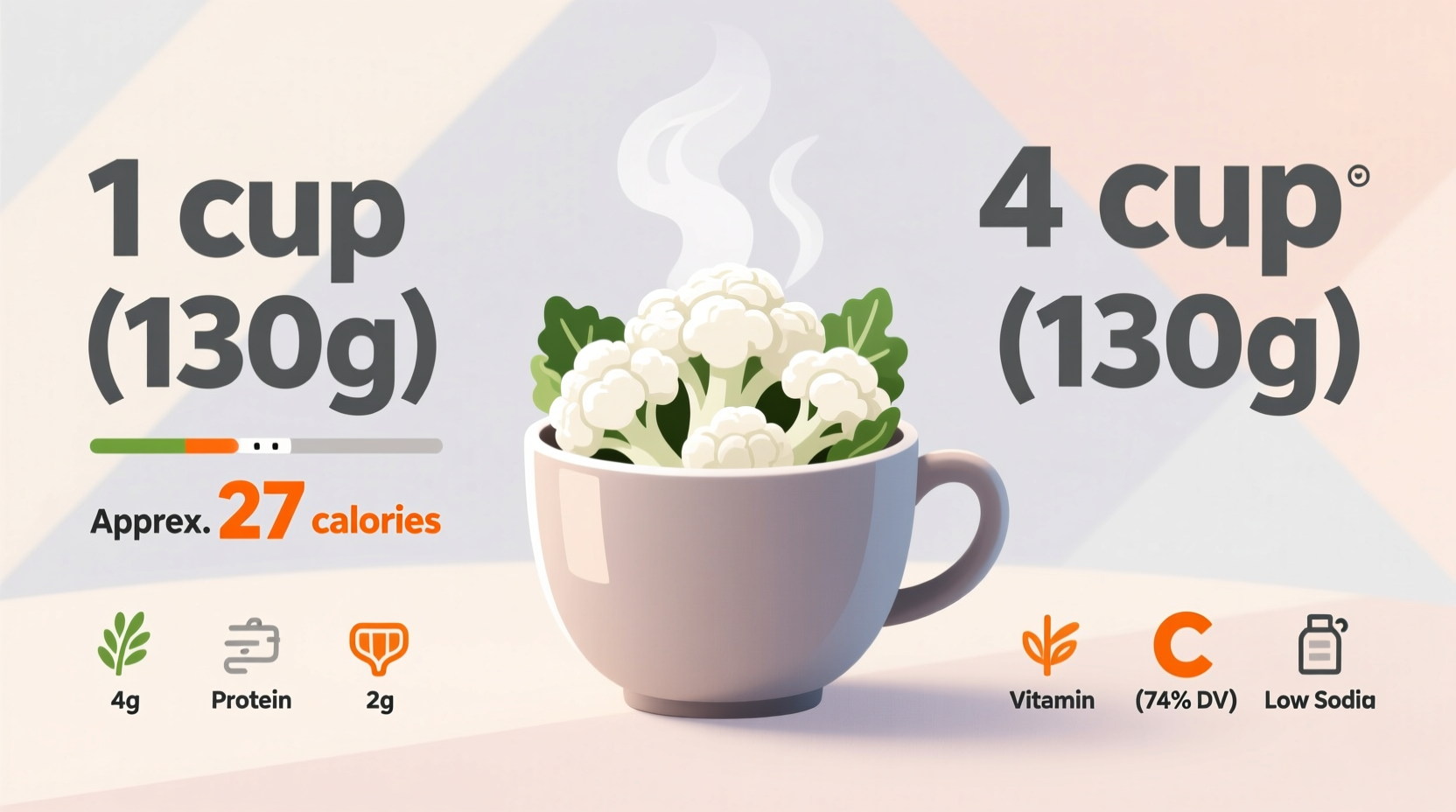Discover exactly how cauliflower fits into your nutritional goals with precise measurements, preparation variations, and practical meal planning insights. Whether you're counting calories for weight management, following a specific diet, or simply curious about this versatile vegetable's nutritional profile, you'll find actionable information to make informed food choices.
Understanding Cauliflower Measurements and Calorie Content
When discussing "a cup" of cauliflower, it's essential to understand what this measurement actually represents. The calorie count varies slightly depending on preparation method and whether you're measuring florets or the whole vegetable.
| Preparation Method | Volume | Weight | Calories |
|---|---|---|---|
| Raw, chopped florets | 1 cup | 100g | 25 |
| Steamed | 1 cup | 150g | 37 |
| Boiled | 1 cup | 155g | 30 |
| Riced (raw) | 1 cup | 120g | 28 |
This measurement data comes directly from the USDA FoodData Central database, the most authoritative source for nutritional information in the United States. The weight differences between preparation methods explain why calorie counts vary—cooked cauliflower absorbs water, increasing its weight per cup while maintaining similar caloric density.
Why Cauliflower's Calorie Count Matters for Your Diet
Cauliflower's remarkably low calorie profile makes it an exceptional substitute for higher-calorie foods. Unlike many vegetables that increase in calories when cooked due to added fats, cauliflower maintains its low-calorie advantage through various preparation methods.
Consider these practical applications:
- Replace one cup of mashed potatoes (240 calories) with mashed cauliflower (25 calories) for an 89% reduction
- Use riced cauliflower instead of regular rice (206 calories per cup) to save approximately 178 calories
- Substitute cauliflower crust for traditional pizza crust to reduce calories by 50-70%

Nutritional Context: Beyond Just Calories
While the calorie count is impressive, cauliflower offers substantial nutritional benefits that make it valuable beyond simple calorie counting. One cup of raw cauliflower provides:
- 77% of your daily vitamin C needs
- 20% of recommended daily fiber intake
- Significant amounts of vitamin K, folate, and potassium
- Only 5 grams of carbohydrates
According to research published by the National Institutes of Health, cruciferous vegetables like cauliflower contain compounds that may support cellular health and reduce inflammation. This nutritional density—high nutrients with minimal calories—makes cauliflower a powerhouse food for health-conscious eaters.
Practical Meal Planning with Cauliflower
Understanding how to incorporate cauliflower into your daily eating pattern transforms this information from abstract numbers to practical dietary strategy. Here's how different dietary approaches can benefit:
For Weight Management
Substituting cauliflower for higher-calorie ingredients creates what nutritionists call "calorie displacement"—maintaining portion sizes while significantly reducing overall calorie intake. A study in the American Journal of Clinical Nutrition found that increasing vegetable volume while reducing calorie density helped participants feel satisfied while consuming fewer calories.
For Low-Carb and Keto Diets
With only 5 grams of carbohydrates per cup, cauliflower serves as an excellent base for low-carb meals. Many keto dieters use it to create "faux" versions of higher-carb foods like rice, mashed potatoes, and even pizza crust.
For General Health Maintenance
Registered dietitians recommend including cruciferous vegetables like cauliflower in your weekly meal plan for their diverse phytonutrient profile. The Academy of Nutrition and Dietetics suggests aiming for 2.5-3 cups of vegetables daily, with cauliflower being an excellent option to help reach this goal without excessive calorie intake.
Common Questions About Cauliflower Nutrition
Understanding how preparation methods affect cauliflower's nutritional profile helps you make informed choices based on your specific dietary needs and goals.











 浙公网安备
33010002000092号
浙公网安备
33010002000092号 浙B2-20120091-4
浙B2-20120091-4